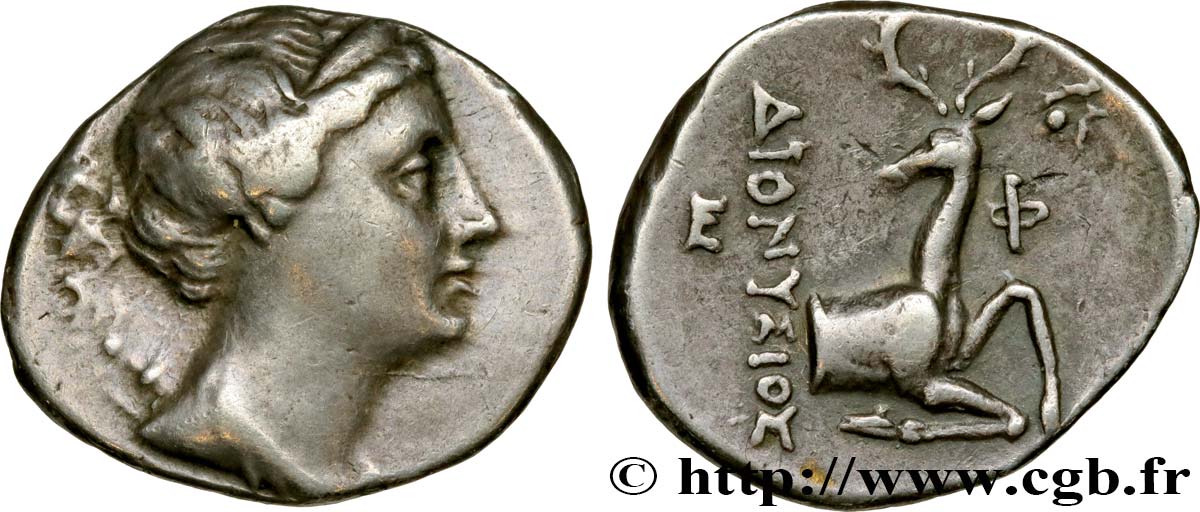bgr_514448 - IONIE - EPHESUS Didrachme
Not available.
Item sold on our e-shop (2019)
Price : 750.00 €
Item sold on our e-shop (2019)
Price : 750.00 €
Type : Didrachme
Date: c. 258-202 AC.
Mint name / Town : Éphèse, Ionie
Metal : silver
Diameter : 19,5 mm
Orientation dies : 12 h.
Weight : 6,50 g.
Rarity : R2
Coments on the condition:
Exemplaire sur un flan ovale bien centré des deux côtés. Belle tête d’Artémis. Revers de style fin. Patine de collection ancienne
Catalogue references :
Predigree :
Cet exemplaire provient de la vente Gemini VII, n° 503
Obverse
Obverse legend : ANÉPIGRAPHE.
Obverse description : Buste diadémé et drapé d’Artémis à droite, l’arc et le carquois sur l’épaule.
Reverse
Reverse description : Protomé de cerf à droite, agenouillé, tournant la tête à gauche ; dans le champ à droite, une petite abeille.
Reverse legend : E-F/ DIONUSIOS.
Reverse translation : (d’Éphèse/ Dionysos).








 Report a mistake
Report a mistake Print the page
Print the page Share my selection
Share my selection Ask a question
Ask a question Consign / sell
Consign / sell